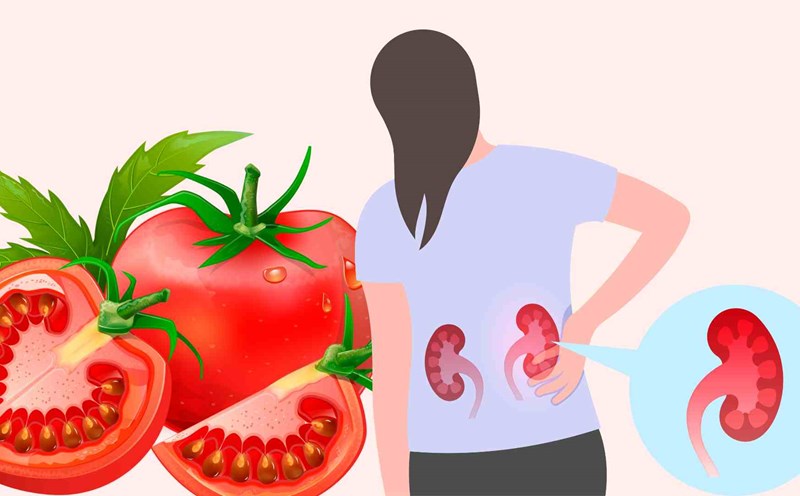Sweet potatoes contain complex starches, low in saturated fat, rich in antioxidants and fiber. These ingredients help:
Provides easy-to-digest energy: reduces protein metabolism, reduces ure production, a waste product that the kidneys have to filter.
Reduces inflammation and oxidative stress: thanks to the compound polyphenol, beta-caroten found in sweet potatoes.
Support stable blood sugar: high fiber intake helps blood sugar increase slowly, which is important because diabetes is the leading cause of kidney failure.
The group of patients with kidney failure in stage 2-3 using boiled sweet potatoes instead of white rice for 12 weeks reduced the average blood urea level by 12% and creatinine by 8%.
You should add vegetables rich in fiber and low in sodium such as sweet potatoes to support kidney function.
Although good, sweet potatoes still contain potassium, electrolytes that need to be cautious for people with severe kidney failure. However, for people with mild kidney failure or early stages, eating in moderation brings clear benefits.
Eat sweet potatoes in moderation, about 100-150g/day
Using sweet potatoes to replace 1/3 of daily rice does not increase potassium in patients with kidney failure in stage 2-3.
Boil or steam sweet potatoes in many water, then discard the boiled water, helping to reduce the potassium content by 30%.
Avoid frying because it increases saturated fat, which can easily disrupt blood lipids - a risk factor for the kidneys.
Sweet potatoes should be accompanied by high-quality protein-rich dishes but low in purines such as non-fermented catfish or steamed tofu. This helps balance nutrition without increasing the filter burden on the kidneys.
In addition to reducing the burden on the kidneys, sweet potatoes also:
Good for digestion: Soluble fiber in sweet potatoes helps nourish probiotics, reduce constipation commonly found in chronic kidney patients.
Support cardiovascular: Antioxidants in sweet potatoes reduce vascular inflammation, support stable blood pressure.
Reduces the risk of infection: Beta-caroten is converted into vitamin A, which enhances immunity.
A report by the National Kidney Foundation shows that a diet rich in fiber-rich, low-sodium foods like sweet potatoes helps reduce the risk of developing end-stage kidney failure by 20%.











